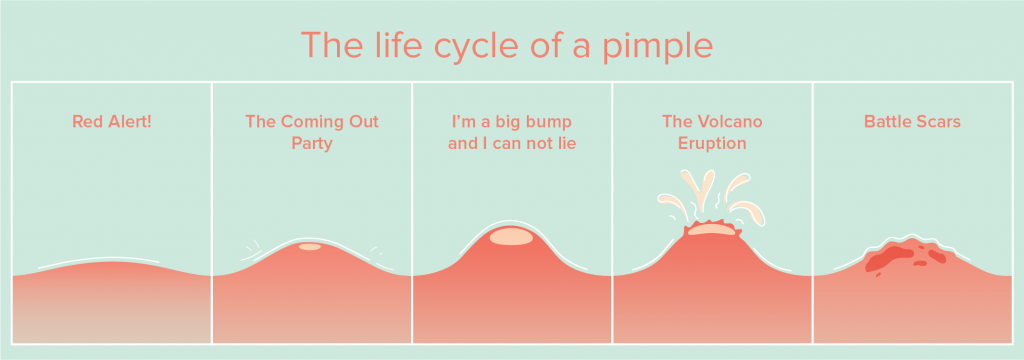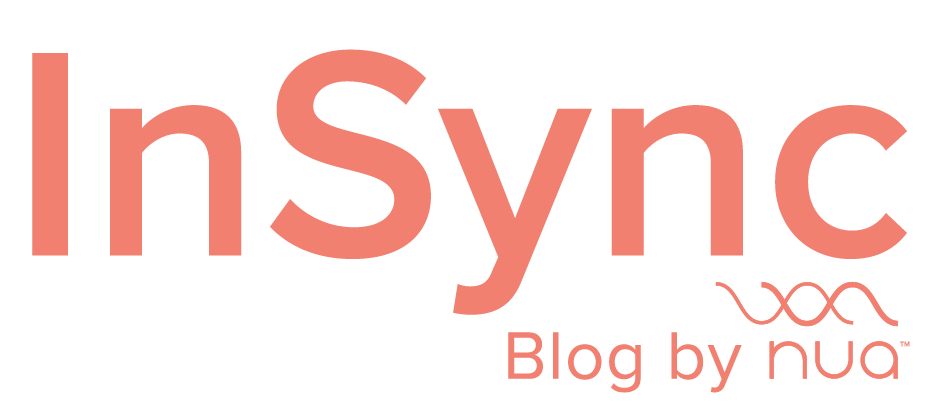Acne is an umbrella term for all pimples. It comes in various shapes and sizes – pus-filled pimples, tiny blackheads, tiny whiteheads – the works. Depending on its size, our perspective and its location, acne can throw a spanner in our plans. So, instead of brushing it under the carpet (or make-up), let’s try to understand the whys and whats of acne.
WHAT IS ACNE?
Simply put, acne is a bacterial infection. Any infection needs two basic things to fester – a bacteria strain and conducive conditions.
The main bacteria which causes acne is scientifically called P. Acnes, but we can call it Pac for simplicity’s sake. This bacteria thrives in humid, oily, oxygen-less conditions. Pac is always hanging around in our atmospheric conditions, mostly on the surface of our skin, looking for a way inside.
This means that we cannot avoid the existence of this bacteria, but we can make sure that our skin doesn’t become host to it.
The main reason why our skin becomes a nesting ground is the production of excessive sebum. Sebum is an oily lubricant-like substance that covers our skin. It’s the natural moisturizer and protector of our skin. When produced in excess amounts, it can block our pores, and this lends humidity and oxygen-less conditions that our dear friend, Pac had been looking for! This blockage is one of the main reasons for acne to occur.
So, it looks like the main problem is not Pac, but sebum?

HOW CAN ACNE HAPPEN?
There can be excessive sebum for a variety of reasons. Maybe you got dealt with the puberty card, maybe you’re a little lazy with cleaning that sweat, make-up, or dirt off your face, or maybe nature just handed you oily skin (some extra sebum) for fun.
Let’s delve deeper into each of these causes:
Hormonal acne
This is the most common reason for long-running acne problems. The male hormones (women have a significant amount of these as well) androgens are generally held guilty for this. Androgens trigger higher sebum production and unusual cell activity, triggering acne.
Puberty
Puberty is the start of our adolescence. It marks the time when our sex hormones get activated, and that’s why we see breakouts only puberty onwards. After all, adolescence can leave scars – acne and otherwise.
Menstrual or period acne
For women, hormonal changes are part of their monthly deal with Mother Nature. Just before the periods set in, there is a drop in our estrogen/progesterone level leaving our residual androgens at a high. These androgens quickly get to work, spreading the sebum all around.
Have you noticed that your skin feels a little oily and flaky just before your period? This is the action of your androgens. One needs to be doubly careful of skin hygiene during this period – or it could lead to the pesky period pimple.
Genetics
Oily skin might be a genetic characteristic that’s been passed on for generations in your family. This would mean that you’re prone to excessive sebum and therefore acne at all points in your life.
Hygiene
Lack of hygiene is a major factor for outbreaks. You’re literally setting up a perfect scene for bacteria if you don’t take care of your skin. This artificially induced sebum in your skin is completely unnecessary. Even if you don’t have oily skin and are not nearing your periods, you can be susceptible to acne if you artificially make nesting conditions for your lovely friend Pac. Make sure you cleanse your face at least twice a day. Take your make-up off. Wipe your face after a sweaty run.
Stress
Excessive stress gives rise to an additional amount of the stress hormone – cortisol. Cortisol can also trigger excessive sebum and send you down that road again.
WHAT CAN YOU DO?
Though there are a lot of genetic reasons that one can’t win against, there are a lot of practices that we can adopt that can definitely offset acne.
Hygiene
Develop a morning and night routine. Basic cleansing habits go a long way towards that perfect, clear texture.
Stress
Don’t stress so much, girl! Sometimes, you don’t even know when you’re stressing. Introspect, organize your thoughts and meditate.
Salicylic Acid
If in case, your skin does break out – fret not. There are many remedies that modern science offers like topical gels. Get yourself a gel/cream loaded with either Salicylic Acid or Benzoyl Peroxide. These elements purify pores and cleanse out impurities from the source.
Dermatologist
If your acne is recurring very frequently, if it’s growing cystic and most of all, if it’s bothering you – visit a dermatologist. They will be able to put you on prescription medicines.
BEST PRACTICES
If acne happens to make an appearance, it WILL live out its life – from a tiny pokey spot, to a white gooey mess, to a dried prune. Everything you do will definitely accelerate its life but only a miracle can make it disappear overnight. So be patient with your skin and yourself.
- Have a healthy skin routine – cleanse, tone, moisturize
- Hydrate, hydrate, hydrate
- Exercise reduces stress levels, increases happy hormones, and sweat cleanses pores (sounds like a win-win!)
- Prepare – if you’re prone to acne, be prepared to carry around a topical gel/cream to constantly treat it
- Don’t touch it! We know you want to but your acne doesn’t like to be touched. Pac only gets angry when you do that.







Thanks for the insight!!!
Puberty got me, but really hygiene also plays big role in having an acne and having a skincare will lessen the acne breakout.